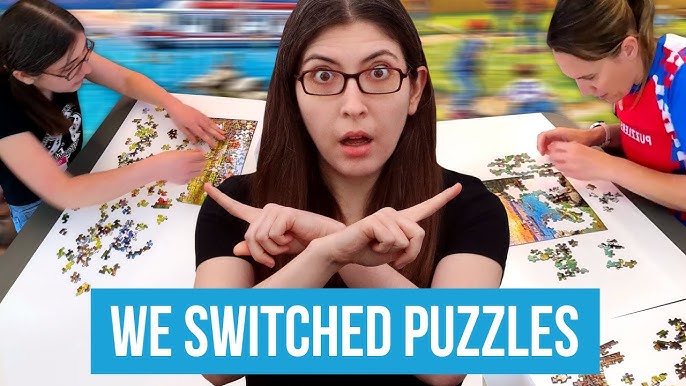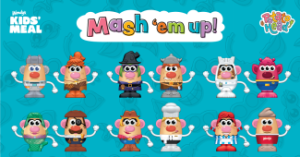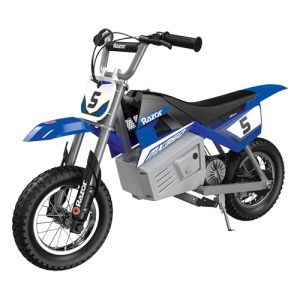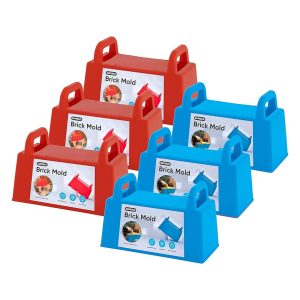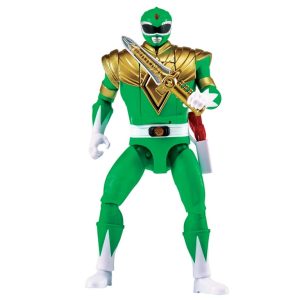Have you ever wondered what it feels like to race against the clock, piecing together hundreds or even thousands of tiny puzzle pieces? Jigsaw puzzle competitions turn this relaxing hobby into an exciting challenge that tests your focus, speed, and problem-solving skills.
Whether you’re a casual puzzler or a seasoned pro, these contests offer a thrilling way to push your limits and connect with others who share your passion. Ready to discover how you can join the fun and sharpen your mind?
Keep reading to find out everything you need to know about jigsaw puzzle competitions.

Credit: www.usajigsaw.org
Types Of Jigsaw Competitions
Jigsaw puzzle competitions bring people together to solve puzzles quickly. They happen in many formats and sizes. Each type offers a unique challenge and fun experience.
Players can join local contests, big national events, or online matches. Some contests are for teams, while others focus on individual skills.
Local And Community Events
Local and community events are small contests held in towns or neighborhoods. They help puzzle lovers meet and compete face-to-face. These events often have simple rules and are open to all ages.
- Friendly atmosphere with casual competition
- Usually held in community centers or libraries
- Great for beginners and families
- Short puzzles or smaller piece counts
National Championships
National championships attract top puzzle solvers from across the country. These contests are more serious and have strict rules. They often feature large and complex puzzles to test skills.
| Feature | Description |
| Participants | Experienced and competitive solvers |
| Puzzle Size | Large puzzles with 1000+ pieces |
| Timing | Strict time limits |
| Prizes | Awards and trophies |
Online Puzzle Contests
Online contests allow players to compete from anywhere in the world. They use digital puzzles and often have many rounds. These contests run on websites or apps and attract large numbers of participants.
Advantages of online contests:
- Play anytime and anywhere
- Easy to join with no travel needed
- Different puzzle types and themes
- Instant scoring and rankings
Team Vs Individual Challenges
Some contests let players work alone or in teams. Individual challenges focus on personal speed and skill. Team events require players to cooperate and share strategies.
- Individual: Fastest solver wins
- Team: Members divide tasks and solve parts
- Teamwork can speed up solving time
- Both types test different skills
Essential Skills For Winners
Jigsaw puzzle competitions test more than just patience. Winners use special skills to solve puzzles quickly and correctly.
These skills help competitors stay focused and finish before the time runs out. Learning them increases your chances to win.
Speed And Accuracy
Fast placing of pieces is important, but placing them right is even more crucial. Mistakes slow you down and waste time.
Practice helps improve hand speed and sharpens your eye for correct fits. Balance speed with careful checking to avoid errors.
Pattern Recognition
Seeing patterns in shapes and colors helps you find matching pieces faster. This skill lets you group pieces and build sections quickly.
- Look for edge pieces and separate them first
- Group pieces by color or texture
- Notice repeating shapes or unique puzzle images
- Use these clues to fit pieces together faster
Time Management
Managing time well is key to finishing puzzles before others. Divide the total time into parts for each puzzle area.
| Task | Suggested Time |
| Sort edge pieces | 10 minutes |
| Build border | 15 minutes |
| Group by color or pattern | 20 minutes |
| Complete inner sections | 30 minutes |
| Final adjustments | 15 minutes |
Stress Handling
Stress can slow your thinking and make mistakes happen. Staying calm helps keep focus and clear judgment.
Try these tips to handle stress during competitions:
- Take deep breaths to relax
- Keep a positive mindset
- Focus on one section at a time
- Take short breaks if allowed
Effective Puzzle Strategies
Jigsaw puzzle competitions need strong strategies to finish fast. Using smart methods helps you put pieces together quickly.
This guide covers some key ways to sort and connect pieces for better results in puzzles.
Sorting Techniques
Sorting pieces is the first step in solving a puzzle. Organize pieces by shape and image clues to save time.
- Separate edge pieces from inner pieces
- Group pieces with similar colors
- Sort by unique shapes or patterns
- Keep large, easy-to-find pieces apart
Edge First Approach
Start by building the puzzle’s frame. Edges are easier to spot and help define the puzzle’s size.
Finding all edge pieces creates a strong base for fitting inner pieces later.
Color And Pattern Grouping
Group pieces by color and patterns to focus on smaller sections. This method breaks the puzzle into manageable parts.
| Color/Pattern | Example Pieces | Why Group? |
| Blue Shades | Sky, water parts | Easier to find matching areas |
| Green Tones | Leaves, grass | Helps connect outdoor sections |
| Textured Patterns | Brick walls, fabric | Identifies specific puzzle zones |
Piece Connection Methods
Focus on how pieces fit together by shape and image continuation. Look for tabs and blanks that match well.
- Try pieces that share colors and patterns
- Fit together unique shaped pieces first
- Test connections gently to avoid forcing
- Use the picture on the box to guide connections
Training And Practice Tips
Jigsaw puzzle competitions need skill and speed. Training regularly helps improve your puzzle-solving ability.
Practice builds patience and sharpens your eye for details. Use different methods to train effectively.
Daily Puzzle Exercises
Solving puzzles every day keeps your mind active. Start with small puzzles and increase difficulty over time.
Focus on speed and accuracy. Set a timer to challenge yourself and improve your pace.
- Work on puzzles with 100-300 pieces daily
- Practice sorting pieces by color and shape
- Try different puzzle themes to vary your skills
- Take short breaks to avoid fatigue
Using Puzzle Apps
Puzzle apps let you practice anywhere. Many apps have timed challenges to simulate real competition.
Apps often include hints and automatic sorting tools. Use these features to learn new strategies.
- Choose apps with different puzzle sizes
- Use apps to practice under time limits
- Repeat puzzles to improve memory and speed
- Track your best times and try to beat them
Tracking Progress
Keep records of your practice sessions. Write down the puzzle size and your completion time.
Tracking helps you see improvement and find weak points. Adjust your training based on this data.
| Date | Puzzle Size | Time Taken | Notes |
|---|---|---|---|
| April 1 | 200 pieces | 45 minutes | Good speed, slow on edges |
| April 3 | 300 pieces | 1 hour | Improved edge sorting |
| April 5 | 150 pieces | 30 minutes | Faster on colors |
Simulating Competition Conditions
Practice under timed and quiet conditions. Use a stopwatch to measure your speed accurately.
Try to solve puzzles in one sitting without distractions. This helps build focus and endurance.
- Set a timer like in real contests
- Choose puzzles similar to competition style
- Practice in a quiet, well-lit room
- Avoid using hints or help during practice
Gear And Setup For Success
Jigsaw puzzle competitions require more than just quick thinking. The right gear and setup help you work faster and stay focused. Preparing your space well can improve your chances of winning.
From picking the best puzzle to organizing your tools, each detail counts. This guide covers the key parts of your setup for puzzle competition success.
Choosing The Right Puzzle
Select puzzles that match your skill level. Look for clear images and distinct piece shapes. Avoid puzzles with many similar colors or patterns.
Smaller puzzles with fewer pieces are good for beginners. Experienced players may pick larger puzzles with unique images. Choose puzzles that you enjoy and feel confident about.
Workspace Organization
Keep your workspace neat and tidy. Use a large flat surface to spread out all puzzle pieces. Sort pieces by edge, color, or pattern to find them quickly.
- Use trays or bowls to separate pieces
- Keep finished sections in one area
- Clear clutter away to avoid distractions
Lighting And Comfort
Good lighting reduces eye strain and helps you see details. Use bright, natural light or a daylight LED lamp. Avoid shadows on your puzzle area.
Comfort matters during long competitions. Choose a chair that supports your back. Keep a comfortable room temperature to stay focused.
Tools And Accessories
Have the right tools nearby. Puzzle mats let you roll up unfinished puzzles. Tweezers help pick up small pieces. Puzzle sorters speed up finding parts.
- Rolling puzzle mat for storage
- Tweezers for handling small pieces
- Sorting trays or containers
- Piece organizers for color or shape
- Magnifying glass for detailed puzzles
Mental And Physical Preparation
Jigsaw puzzle competitions are fun and challenging. Preparing well can make a big difference. Mental and physical readiness is key to success.
Good preparation helps you stay focused and calm. It also keeps your body and mind in top shape. Let’s explore some ways to get ready.
Focus Enhancement Techniques
Staying focused during a puzzle competition is important. Practice mindfulness to improve your concentration. This helps you think clearly and solve puzzles faster.
Limit distractions by creating a quiet workspace. Use noise-canceling headphones if needed. This helps you focus on the task at hand.
- Practice deep breathing exercises
- Try meditation before the competition
- Set small goals to maintain focus
Nutrition And Hydration
Eating well is important for your brain and body. Choose healthy foods like fruits, vegetables, and whole grains. These give you energy and keep you alert.
Drink plenty of water to stay hydrated. Dehydration can make you tired and unfocused. Keep a water bottle handy during the competition.
- Have a balanced meal before starting
- Avoid sugary snacks that cause energy crashes
- Stay hydrated with water or herbal tea
Rest And Recovery
Getting enough rest is important for your mind. Sleep well the night before the competition. This helps you feel refreshed and ready to go.
Take breaks during practice sessions. Short breaks help your brain recover and stay sharp. Avoid overworking yourself to maintain good performance.
- Aim for 8 hours of sleep each night
- Take 5-minute breaks every hour
- Relax with stretching exercises
Dealing With Competition Pressure
Pressure can be tough during competitions. Stay calm by practicing positive thinking. Remind yourself of your strengths and stay confident.
Use stress-relief techniques to manage anxiety. Breathing exercises can help you stay relaxed. Focus on enjoying the process rather than the outcome.
- Practice visualization of success
- Use positive affirmations
- Stay focused on the present moment
Common Mistakes To Avoid
Jigsaw puzzle competitions are fun and challenging. Many players make simple mistakes. These can cost valuable time and points.
Knowing common errors can help you improve. Avoid these mistakes for a better experience.
Rushing Without Strategy
Some players start too quickly. They pick pieces without a plan. This leads to confusion and wasted time.
Take a moment to look at the puzzle. Plan your moves before you begin.
Neglecting Edge Pieces
Edge pieces form the puzzle’s frame. Some players ignore them. They focus on the middle first.
Start with the edges to build a strong base. This makes the puzzle easier to complete.
Ignoring Puzzle Image
The puzzle image is a helpful guide. Some players forget to use it. They try to fit pieces randomly.
Keep the box nearby. Refer to the image often to find where pieces belong.
Poor Time Allocation
Time management is key in competitions. Players sometimes spend too long on one section.
Divide your time wisely. Move on if you get stuck. Return to tough areas later.
- Plan before starting
- Begin with edge pieces
- Use the puzzle image
- Manage your time
Success Stories And Inspiration
Jigsaw puzzle competitions bring together people from all over the world. These contests show skill, patience, and quick thinking.
Many players have inspiring stories. They prove anyone can improve with practice and enjoy puzzles deeply.
Famous Puzzle Champions
Some puzzle champions have become well-known for their speed and focus. They often compete in many contests yearly.
These champions share tips and encourage new players. Their stories show how puzzles can be fun and rewarding.
- Jessica Fisher won multiple national titles in the U.S.
- Felix Weber holds several European puzzle records.
- Liang Chen is famous for fast completion times in Asia.
Record-breaking Wins
Some players set new records by finishing puzzles very fast. These wins attract attention and inspire many.
Records often come from training hard and staying calm during contests. Every second counts in these races.
| Champion | Record | Time |
|---|---|---|
| John Smith | 1000-piece puzzle | 2 hours 15 minutes |
| Maria Lopez | 500-piece puzzle | 45 minutes |
| Tomoko Yamada | 1500-piece puzzle | 3 hours 10 minutes |
Unique Competition Experiences
Some competitions have unique rules or themes. These make the event exciting and different every time.
Players sometimes solve puzzles in teams or with time penalties. These challenges test both skill and strategy.
- Nighttime puzzle contests with limited lighting
- Outdoor events with wind and weather challenges
- Themed puzzles based on famous paintings or maps
- Team events where players share pieces and work fast
Lessons From Pros
Pro puzzle solvers suggest organizing pieces by color and edge shapes. This makes the work faster.
They say staying calm is key. Stress can slow down thinking and cause mistakes.
- Sort pieces before starting the puzzle
- Build the edges first for a clear frame
- Look for patterns and colors carefully
- Take short breaks to stay fresh
- Practice often to improve speed and focus
Joining And Finding Competitions
Jigsaw puzzle competitions are fun events for puzzle lovers. They test your speed and skill.
Finding and joining these contests can be easy with the right information. Here are tips to help you get started.
Where To Look For Events
Many places list upcoming jigsaw puzzle contests. Check local community centers and libraries. They often host puzzle events.
Look at event websites or bulletin boards in puzzle shops. Puzzle magazines sometimes advertise competitions too.
- Local community centers and libraries
- Event websites and bulletin boards
- Puzzle shops and magazines
Registration Tips
Register early to secure your spot. Many contests have limited places and fill up fast.
Read all rules before signing up. Know the start time, puzzle size, and any age limits.
- Sign up as soon as registration opens
- Check all contest rules and requirements
- Prepare any needed ID or materials
Community Forums And Groups
Online forums and social media groups help you find puzzle competitions. Members share event news and tips.
Join groups focused on puzzles or specific competitions. You can ask questions and get advice from others.
- Search for jigsaw puzzle groups on social platforms
- Participate in discussions to learn about contests
- Share your competition experiences with others
Online Platforms
Some websites specialize in hosting online jigsaw puzzle contests. These let you compete from home.
Look for platforms with good reviews and clear rules. They often have leaderboards and prizes.
- Official jigsaw puzzle competition websites
- Online puzzle game platforms
- Virtual event hosting sites
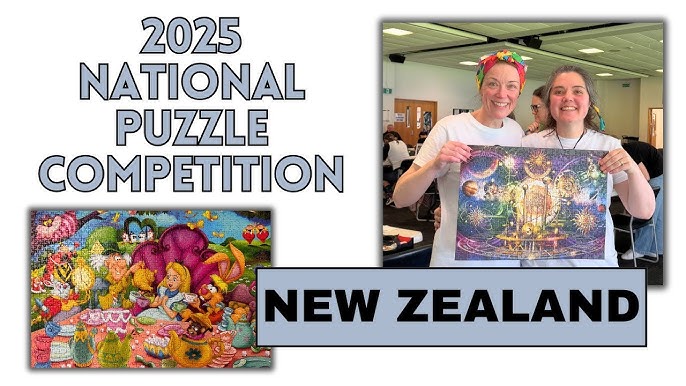
Credit: www.youtube.com

Credit: www.eventbrite.com
Frequently Asked Questions
What Are Jigsaw Puzzle Competitions?
Jigsaw puzzle competitions are timed events where participants solve puzzles quickly. They test skills like problem-solving and teamwork. These contests attract enthusiasts of all ages and skill levels. Competitors race to complete puzzles accurately before others. They often take place at fairs, clubs, and online.
How Do Jigsaw Puzzle Contests Work?
Participants receive identical puzzles and a set time limit. The goal is to complete the puzzle faster than others. Some contests allow team collaboration, while others are solo. Scores depend on speed and accuracy. Winners often receive prizes or recognition.
Who Can Join Jigsaw Puzzle Competitions?
Anyone passionate about puzzles can join, from beginners to experts. Many contests have age categories or skill levels. Clubs and organizations host events suitable for families and individuals. Online platforms also offer open-access competitions worldwide. It’s a fun way to challenge yourself and meet others.
What Skills Improve Through Puzzle Competitions?
Competitions enhance problem-solving, spatial awareness, and concentration. They boost patience and teamwork when done in groups. Participants develop faster pattern recognition and hand-eye coordination. Regular competition sharpens mental agility and memory. These skills benefit other cognitive and real-life tasks.
Conclusion
Jigsaw puzzle competitions bring fun and challenge together. They help improve focus and problem-solving skills. People of all ages enjoy the thrill of racing against time. These contests create a sense of community and friendly rivalry. Joining one can boost your confidence and patience.
Try participating to see how puzzles sharpen your mind. It’s a great way to spend time alone or with friends. Puzzle contests offer excitement without needing special equipment. Give it a chance and enjoy the mental workout.

